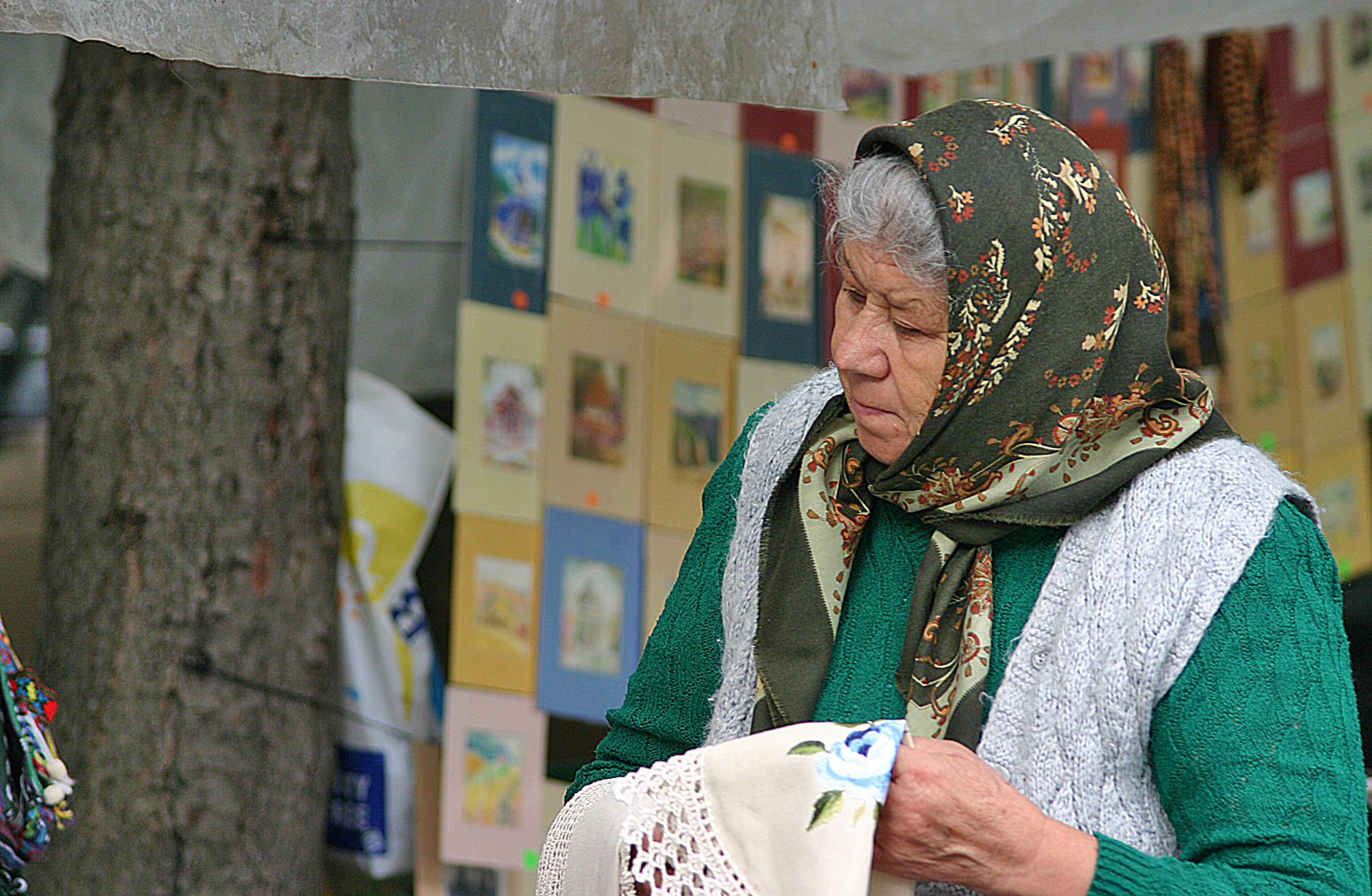As I was wandering around Bucharest, I noticed an older woman who was selling souvenirs to tourists who wanted to take home something from Romania — and that simple scene caused me to stop for a moment and think about the history of this woman, who seemed to simultaneously be both kindly and stern.
Sunday Morning Photograph October 24 2021: A Woman Selling Souvenirs in Bucharest.
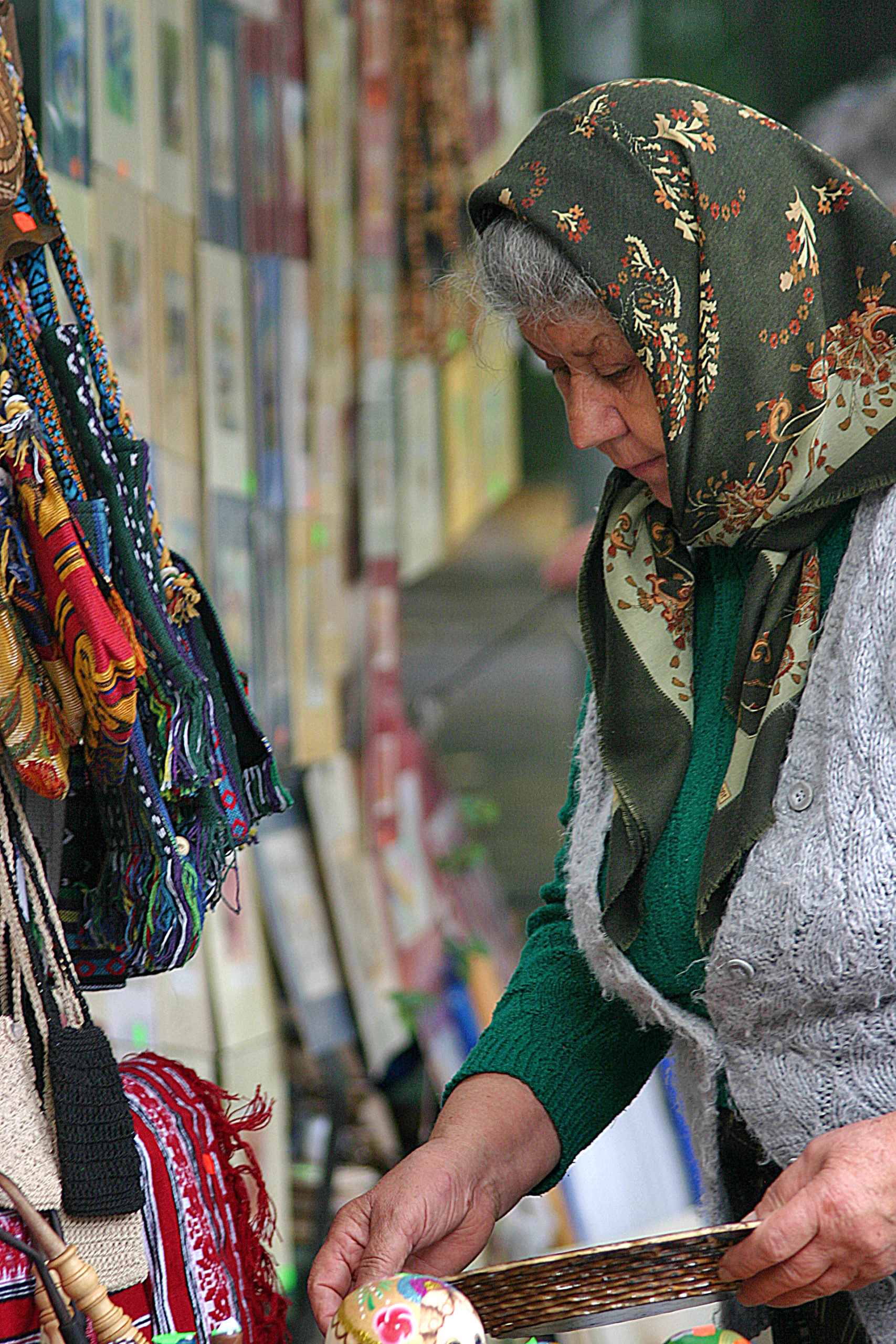
From Saturday, December 16, 1989 through Monday, December 25, 1989, the country of Romania experienced a revolution, which ended what became 42 years of Communist rule when Nicolae Ceaușescu — who was the general secretary of the Romanian Communist Party — and his wife Elena were tried and executed.
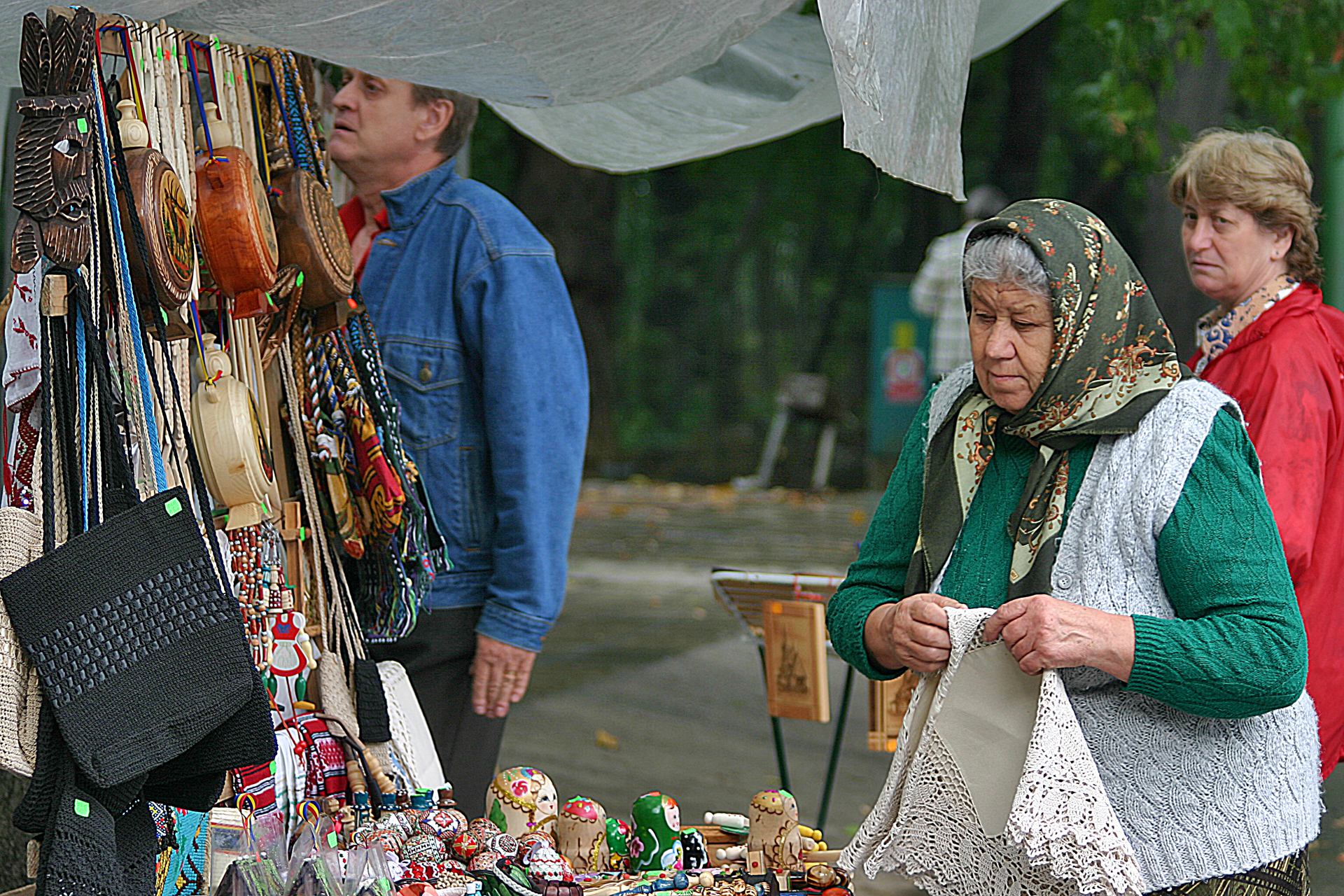
One can still see bullet holes in the buildings at the piațas near what used to be known as the Central Committee Building, which today houses the Ministry of Internal Affairs of Romania. A total of 1,104 people had died and 3,352 additional people were wounded during the ten days of the revolution…
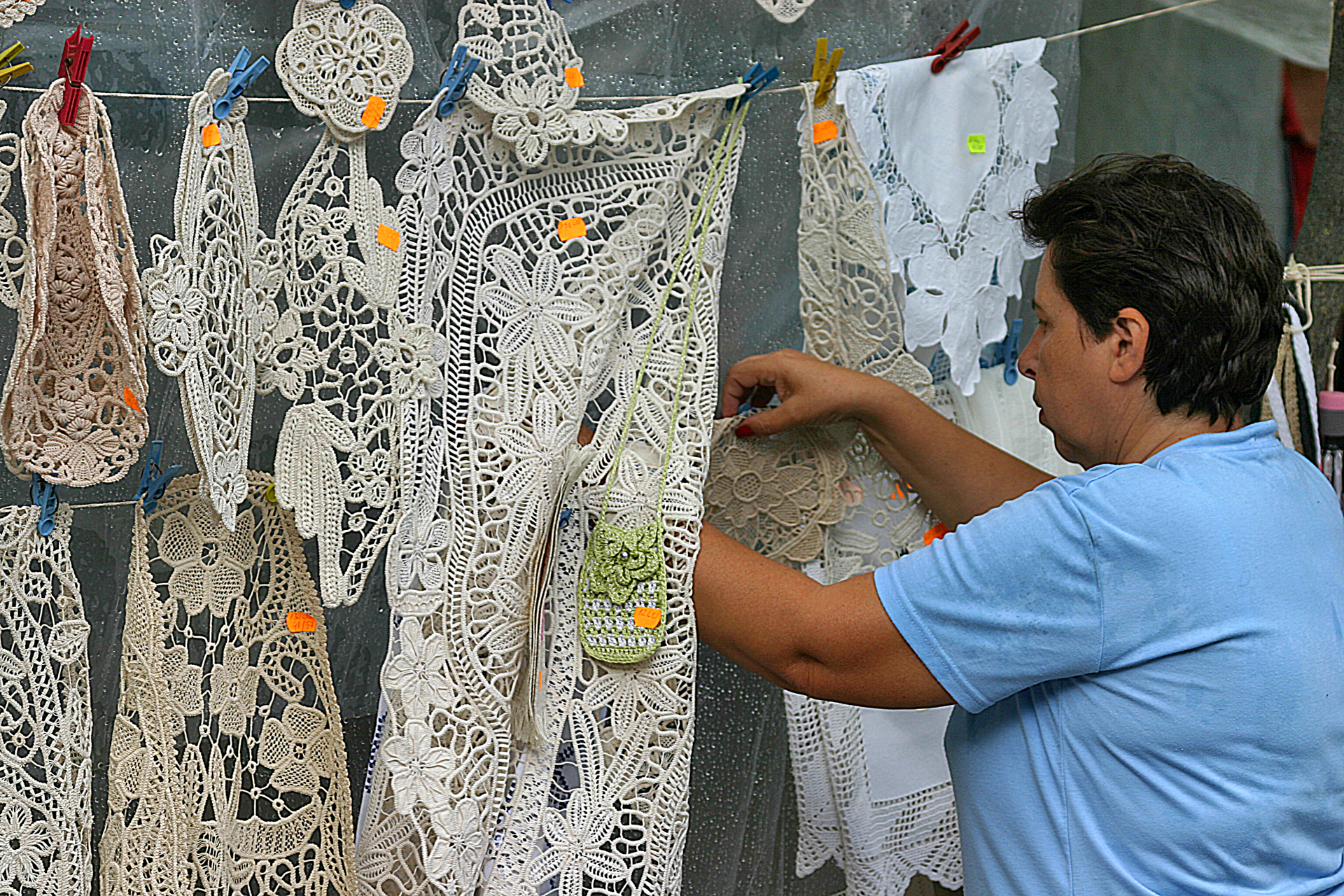
…but not everyone was happy with the end of Communism in Romania. I walked into a bookstore with several colleagues — all of us from the United States — and moments later, an elderly woman approached one of my colleagues and started yelling at him angrily in Romanian for at least a couple of minutes.
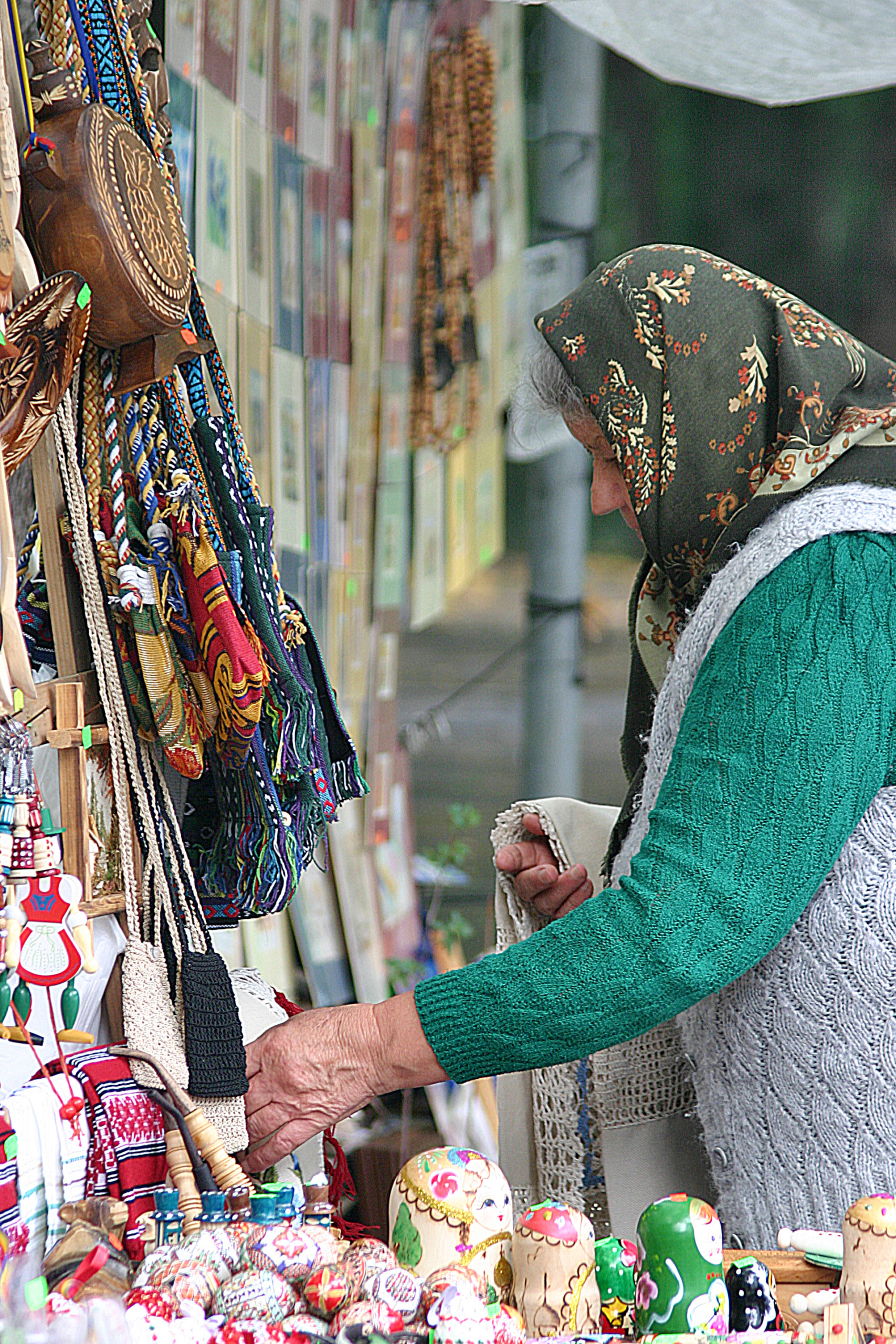
The elderly woman supposedly recognized him as being from the United States and was apparently “blaming” him for the end of Communism, under which she lived a certain lifestyle that was rigid and restrictive — but at least guaranteed to have the government support her. It was the only way of life she knew.
Since then, capitalism became the main economic and political system in Romania — and she was angry in having to deal with a system which was unfamiliar to her and ultimately left her struggling even more to earn a living.
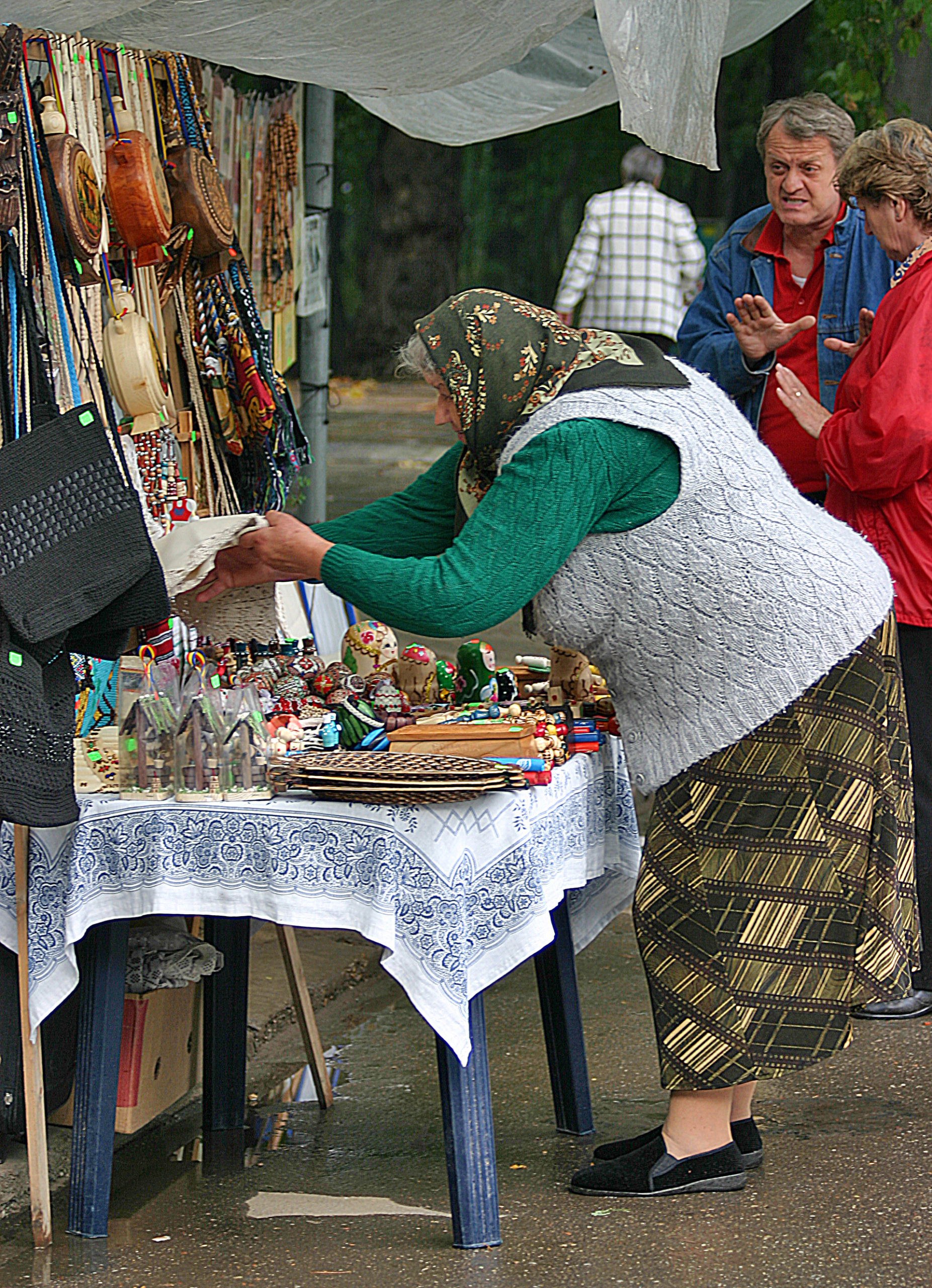
My colleague was stunned and did not know what was happening when that woman yelled at him — but I did wonder if this woman who was selling souvenirs had a similar history: having to now operate a souvenir stand in order to earn money instead of depending on the government for support.
Final Boarding Call
Somewhere deep in this anecdotal parable might be a lesson for governments around the world — including the United States — pertaining to social constructs of their economic and political systems, which today seem more needlessly destructive than constructive while simultaneously aimless and pointless.
As for that unidentified woman who was modestly dressed on that cool autumn day: I got the feeling that although she took pride in her work, she also seemed to rather be somewhere else doing something else at that moment — as though a dream hopelessly forever slipped through her fingers like water lost through a sieve.
I truly hope that she eventually found a way to do well for herself…
Please click here for a complete list of the Sunday Morning Photograph series of articles at The Gate.
All photographs ©2007 by Brian Cohen.
